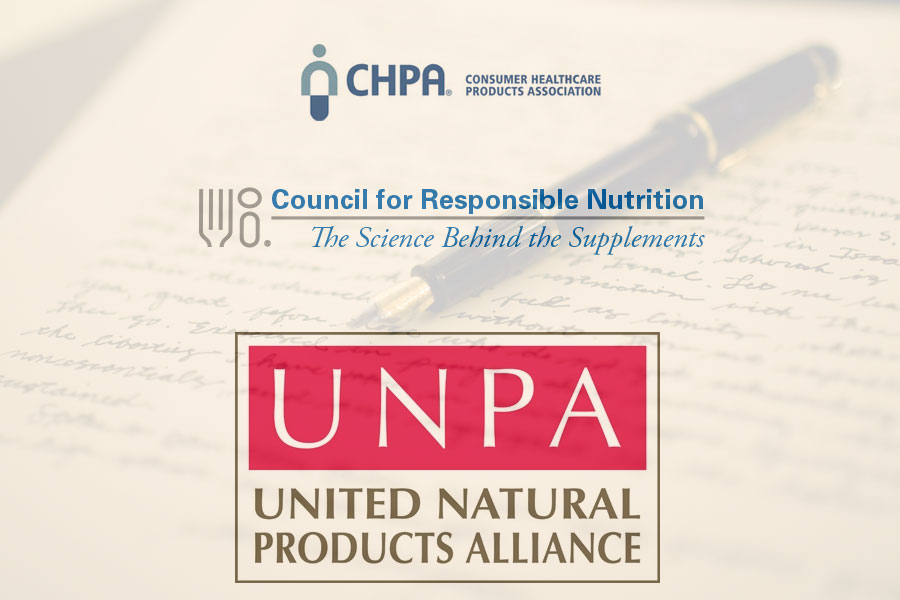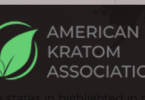Daniel Fabricant, Ph.D., Director
Division of Dietary Supplement Programs Center for Food Safety and Applied Nutrition Food and Drug Administration CPK-1 Bldg, Rm 4C-095 5100 Paint Branch Parkway College Park, MD 20740 Via Email: daniel.fabricant@fda.hhs.gov
Dear Dr. Fabricant:
July 18, 2013
The undersigned trade associations, representing the manufacturers, retailers, and distributors of dietary supplements and dietary ingredients, are writing to request that FDA clarify the regulatory status of Mitragyna speciosa (kratom), and take any warranted enforcement action necessary to prevent the further introduction of this substance into the U.S. market.
As you are well aware, this substance is often mis-marketed as a dietary supplement despite falling outside the legal definition of a dietary supplement based on its intended uses. The Drug Enforcement Agency (DEA) states that consumption of kratom “can lead to addiction” and that “[t]here is no legitimate medical use for kratom in the United States.”1 According to DEA, individuals addicted to kratom “exhibit psychotic symptoms including hallucinations, delusion and confusion.”2 In 2004, Australia included kratom in Schedule 9 of the Standard for the Uniform Scheduling of Drugs and Poisons based on its potential for abuse. However, kratom is not currently scheduled under the Controlled Substances Act (CSA), and that process is not likely to happen quickly given the lengthy process required for adding substances to the CSA. Thus, FDA appears to be best positioned to address the issues presented by the marketing of this substance.
We understand from presentations that FDA has made to industry groups that FDA believes kratom to be an impermissible dietary ingredient and that FDA has worked with the U.S. Customs Service to confiscate shipments of kratom at the border.3 Nevertheless, some individuals continue to find ways around the law, including mislabeling their shipments of kratom as dietary supplements or dietary ingredients to avoid detection. Given the widespread availability of kratom, the dietary supplement industry is concerned about the potential dangers to consumers who may believe that they are consuming a safe, regulated product when they are not.
As representatives of the dietary supplement industry, we urge FDA to publicly clarify the reasons for its safety concerns about kratom and the basis for its determination that kratom is not a
1 DEA Fact Sheet, Kratom, http://www.justice.gov/dea/druginfo/drug_data_sheets/Kratom.pdf. 2 Id. 3 FDA Import Refusal Report, http://www.accessdata.fda.gov/scripts/importrefusals/ir_detail.cfm?EntryId=110- 1887939-9&DocId=1&LineId=1&SfxId=A.
Daniel Fabricant, Ph.D. July 18, 2013 Page 2
legitimate dietary supplement. This transparency will assist industry members to understand the FDA’s concerns and deter further marketing of kratom under the mistaken belief that it is a legitimate product. We also urge the agency to use its enforcement authority if it believes this substance and any products containing it are adulterated and take appropriate steps to prevent its further introduction into the U.S. market, including increasing awareness of the potential distribution by alerting inspectors. We applaud the recent enforcement activities in this area and encourage FDA to devote additional attention to this issue to protect consumers.
Thank you for your consideration of our concerns, and we look forward to hearing from the agency how it plans to address this important issue.
Sincerely,
Steve Mister President & CEO Council for Responsible Nutrition
Loren Israelsen President United Natural Products Alliance
Scott Melville President & CEO Consumer Healthcare Products Association







